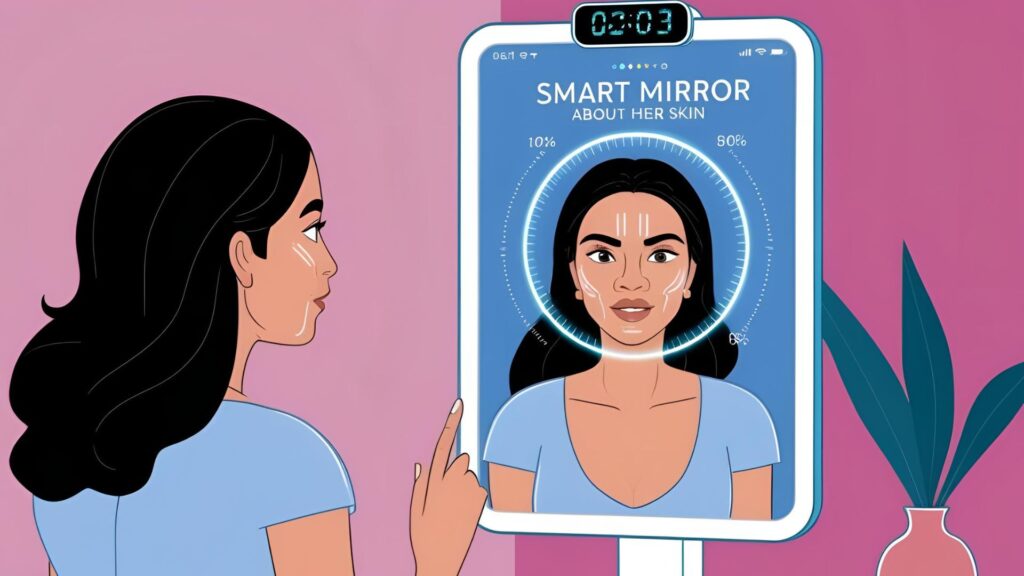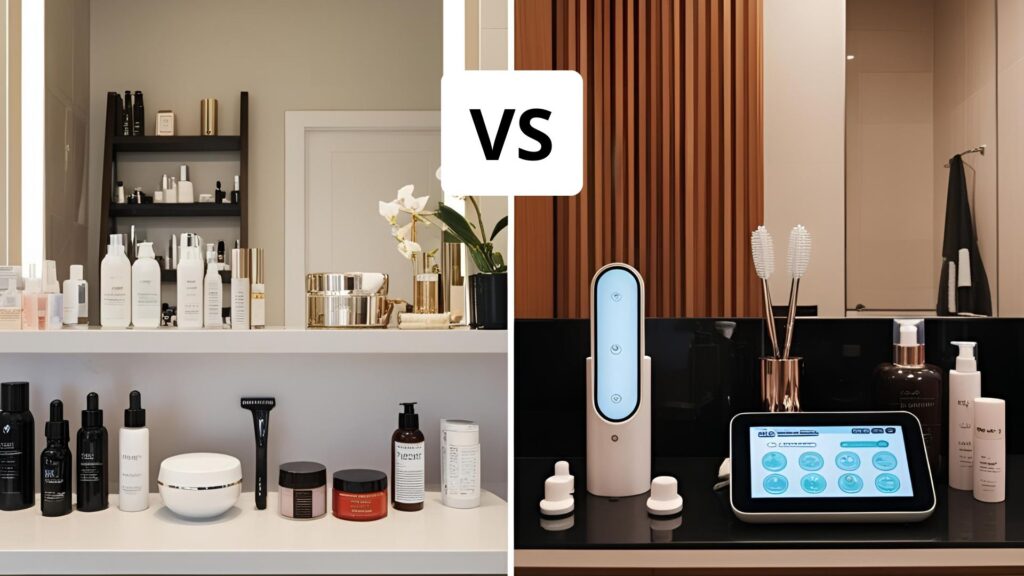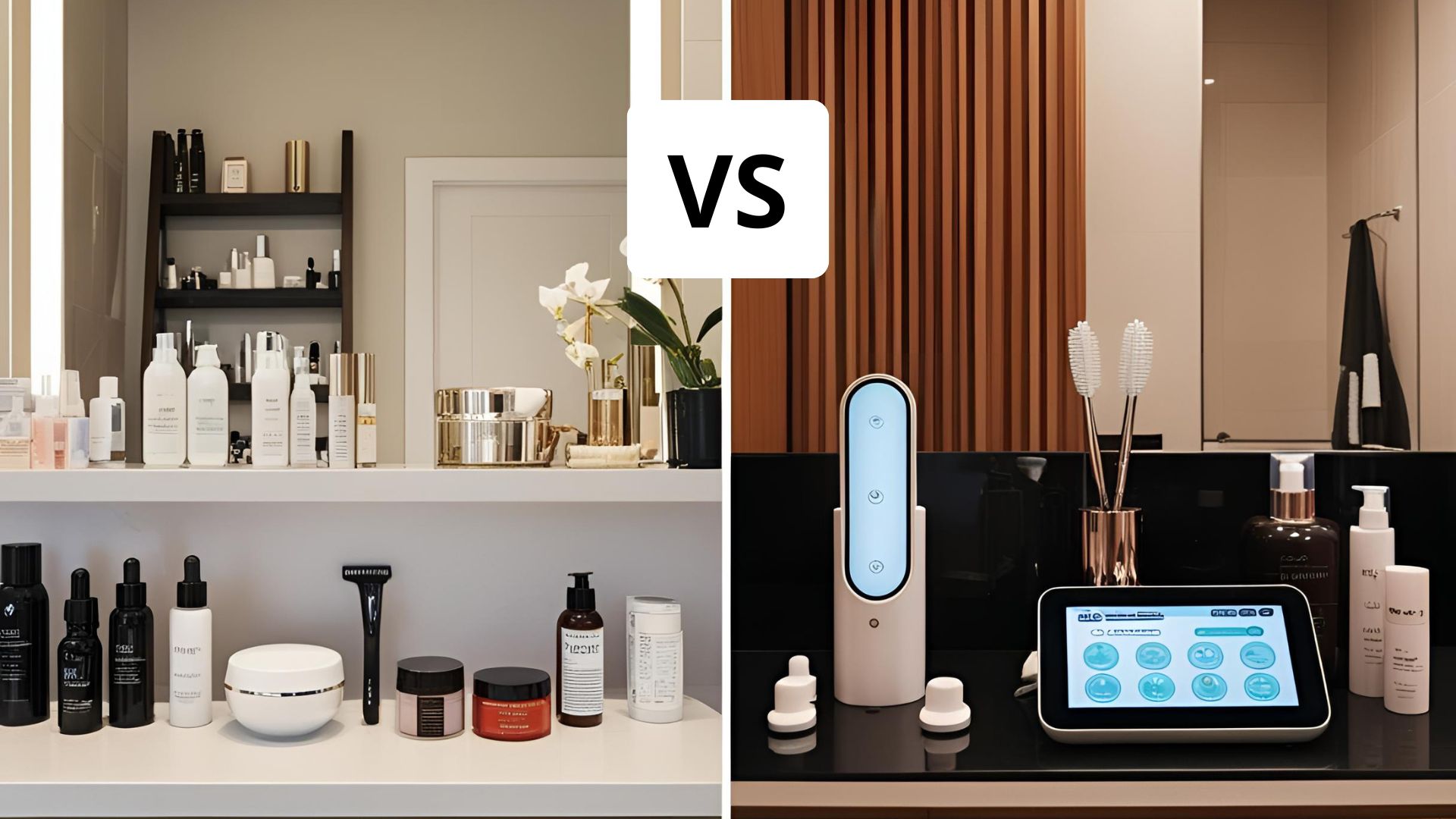The beauty industry, long guided by tradition and artistry, is undergoing a remarkable transformation thanks to the rapid advancements in artificial intelligence (AI) and digital technology. What was once a field dominated by in-person consultations and mass-produced products is now being revolutionized by personalized skincare algorithms, augmented reality try-ons, smart devices, and virtual beauty advisors. These innovations not only enhance consumer experience but also redefine how beauty is perceived, created, and delivered on a global scale.
The Rise of Artificial Intelligence in Beauty
AI in Personalized Skincare and Haircare
One of the most significant changes in the beauty industry is the adoption of AI for personalized skincare and haircare routines. AI-powered apps and diagnostic tools analyze user data — such as skin type, concerns, environment, and lifestyle — to recommend custom product combinations.
For example, companies like Proven Skincare and Skinsei use machine learning algorithms to deliver bespoke products based on user-submitted data. These systems collect information through quizzes or images and continuously learn from customer feedback to refine product efficacy.
Keywords: personalized beauty technology, AI in skincare, machine learning beauty solutions
Smart Diagnostics and Skin Analysis

AI-driven tools can now analyze skin conditions with remarkable precision using high-resolution imaging and deep learning. These diagnostics go beyond human observation to detect issues like dehydration, wrinkles, pigmentation, and sensitivity.
Some brands incorporate AI into mobile apps, allowing users to scan their faces and receive real-time assessments. This gives consumers autonomy and access to dermatology-grade insights without visiting a clinic.
Keywords: smart skin analysis, beauty AI diagnostics, digital skin assessment
Virtual Beauty Experiences and Augmented Reality
AR Try-Ons and Virtual Makeovers
Augmented reality (AR) has significantly improved the virtual shopping experience. Apps like YouCam Makeup and tools by L’Oreal or Sephora allow users to virtually try on makeup products in real-time using their smartphone cameras. This boosts confidence in online purchases, reducing product returns and increasing customer satisfaction.
These tools offer a seamless experience where users can explore colors, finishes, and effects, making beauty accessible and fun. AR also democratizes beauty by giving everyone the power to experiment with different looks from the comfort of their home.
Keywords: AR beauty tools, virtual makeup try-on, augmented reality cosmetics
AI-Powered Virtual Beauty Advisors
Beauty companies are also implementing AI-powered virtual assistants to guide consumers through their shopping journey. These bots can offer personalized recommendations, answer skincare questions, and replicate the interaction of in-store beauty advisors.
This evolution has proven essential, especially during the COVID-19 pandemic when physical interactions were limited. The convenience of 24/7 virtual support has become a new standard in digital customer service.
Keywords: virtual beauty advisor, chatbot skincare, AI cosmetics consultation
Smart Devices and the Future of Home Beauty Tech
Connected Beauty Devices
The emergence of smart beauty devices has brought the salon experience into people’s homes. From AI-powered cleansing brushes to LED therapy masks, these tools provide professional-level care enhanced by tech features like app integration and progress tracking.
Brands like Foreo, L’Oreal’s Perso, and Neutrogena Skin360 lead this sector by offering connected tools that analyze user behavior and adapt accordingly. This makes skincare more efficient and tailored to evolving needs.
Keywords: smart skincare devices, home beauty tech, AI-powered beauty gadgets
The Internet of Things (IoT) in Beauty
The integration of the Internet of Things (IoT) within the beauty space allows devices to communicate, analyze, and respond in real time. IoT-enabled tools can adjust settings based on skin feedback, environmental factors, or usage habits.
These innovations signal the shift from reactive to proactive skincare, with devices helping users prevent issues before they emerge.
Keywords: IoT beauty technology, real-time skin monitoring, connected cosmetic devices
Data, Ethics, and the Philosophical Debate
Data Privacy and Consent in AI Beauty Tools
While AI offers immense benefits, it also raises ethical questions regarding data usage. Users must trust that companies handle their personal and biometric data responsibly. Clear consent, transparent policies, and secure encryption are crucial for ethical innovation.
As Plato once said, “Beauty lies in the eye of the beholder” — a statement that resonates deeply in the age of digital beauty. With algorithms shaping our perceptions, there is a pressing need to ensure inclusivity, authenticity, and ethical responsibility.
Keywords: data ethics in AI, beauty tech privacy, ethical AI in cosmetics
Inclusivity and Algorithmic Bias
AI systems are only as unbiased as the data they’re trained on. A lack of diverse datasets can lead to inaccurate recommendations for people of different skin tones, hair types, or ethnic backgrounds.
Tech developers must prioritize inclusivity, creating models that reflect global beauty standards and diverse populations.
Keywords: inclusive beauty AI, algorithmic fairness, diversity in beauty tech
Comparing Traditional vs. Tech-Driven Beauty Approaches
| Aspect | Traditional Beauty | AI-Driven Beauty |
|---|---|---|
| Product Personalization | Generalized by skin type or demographic | Hyper-personalized using user data |
| Access | In-store consultations | Virtual and on-demand via apps |
| Diagnostics | Based on visual examination | AI-powered image and data analysis |
| Engagement | Salesperson-driven | AI chatbots and interactive tools |
| Innovation Speed | Incremental | Rapid and tech-driven |

Final Thoughts: Embracing the Future of Beauty
The fusion of AI and technology with the beauty industry is not just a passing trend — it’s a structural shift that enhances how consumers discover, use, and benefit from beauty products and services. Whether through personalized skincare, virtual makeup try-ons, or smart home devices, the digital transformation is making beauty more precise, accessible, and inclusive.
As long as the industry maintains a human-centric approach and addresses ethical considerations, technology will continue to empower individuals to redefine beauty on their own terms.
Keywords: AI and beauty, future of cosmetics, digital transformation in skincare, beauty innovation

